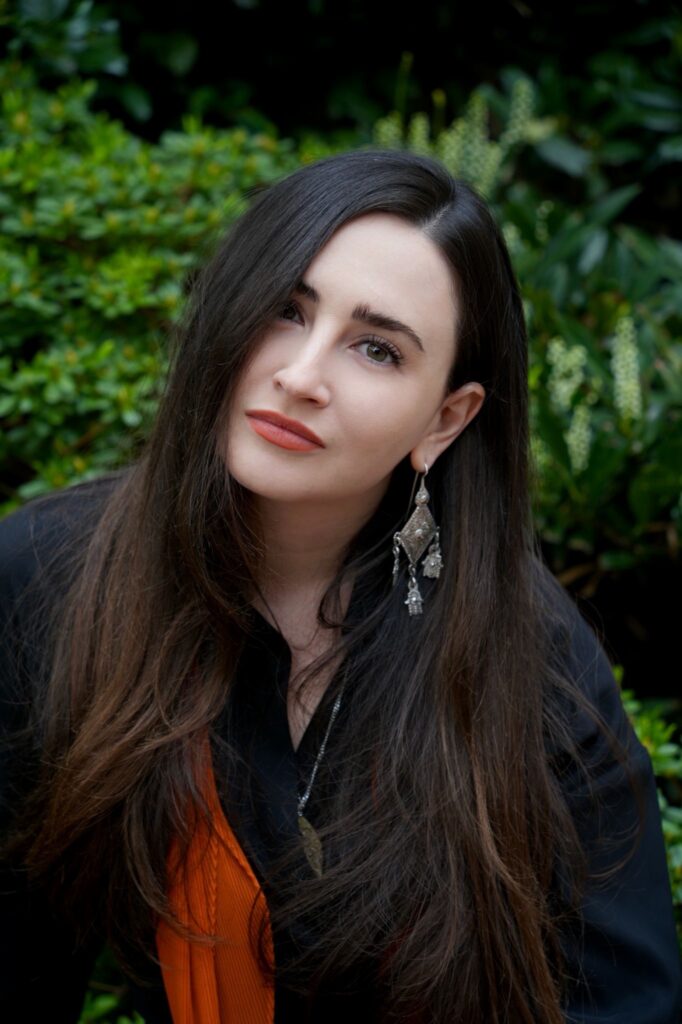Hillel International Israel Summit Presents: A Conversation with Lee Yaron

Lee Yaron is an award-winning Israeli journalist and the winner of the 2022 Yitzhak Livni “Knight” Award for Free Speech in Media, the 2024 National Jewish Book Award – Book of the Year, and the 2025 Natan Notable Books award. As a journalist for Haaretz newspaper, her investigative reporting has resulted in the founding of state-level commissions and substantial changes to Israeli policy and law. She is an elected member-representative of the Executive Committee of the Union of Israeli Journalists.
Her new book, “10/7: 100 Human Stories,” is the definitive account of the October 7 attacks through the stories of its victims and the communities they called home. Already a bestseller in Europe, the book has been published in multiple languages, including English, French, German, and Dutch.
Lee will be a speaker at the upcoming Hillel International Israel Summit. Ahead of the Summit, we sat down with her to hear about what she would like to offer Jewish college students as they navigate a complex world.
Hillel: Hi Lee, thank you so much for taking the time to chat with us about your upcoming role at the Hillel International Israel Summit. Before we get there, you’ve been speaking at college campuses across the country as part of the Hillel Teach-In Tour. Can you share a moment from the tour that has been particularly moving?
Lee: I met a student who felt overwhelmed and attacked on campus, being labeled a “white colonizer” while facing claims that Hamas’ actions were justified resistance. He admitted he didn’t know Israel’s history well enough to respond effectively. Another student in class, despite being well-versed in historical facts, found that peers dismissed everything as “Zionist propaganda.”
What moved me was receiving a message from this student a month later. He shared how, for the first time, he was able to have a meaningful discussion with a non-Jewish friend by sharing human stories from my book — particularly about Ukrainian and Arab victims of October 7th.
This revealed something crucial: the path to understanding often doesn’t move from general facts to personal connection, but rather from personal stories to broader understanding.
These personal narratives accomplish what facts alone cannot — they reveal the true complexity and diversity of Israeli society, its peace efforts, and its fundamental humanity.
Hillel: What has been the most meaningful part of speaking with Jewish college students?
Lee: Witnessing students discover a new lens through which to understand October 7th and Israel — one grounded in human stories rather than political narratives.
In writing this book, I wanted to move beyond statistics and political agendas to provide a ground-level view of the Israeli-Palestinian conflict, bringing readers into the hearts and homes of those caught in the crossfire. This approach resonates deeply with students who are seeking authentic ways to understand and discuss these complex issues.
Hillel: What are you looking forward to at Israel Summit?
Lee: I’m looking forward to engaging with the next generation of Jewish leaders and offering them powerful tools — human stories and empathy — to navigate the challenging conversations they face. These students represent not just the future of Jewish leadership, but also the potential for building bridges of understanding in increasingly polarized spaces.
Hillel: What is one message you would like students to take away from Israel Summit?
Lee: Empathy is our most powerful tool for building understanding across divides. Literature and personal stories create pathways to empathy that arguments and statistics cannot. When we understand each other’s human experiences, we lay the groundwork for meaningful dialogue and, ultimately, solutions.
Hillel: What is your favorite part about being Jewish and Israeli?
Lee: In a time when some call for boycotting Israeli writers and creating “blacklists” of “Zionist writers,” our identity as Am HaSefer – People of the Book – takes on renewed significance. While there’s increasing pressure to speak with one voice or face reprisals, our tradition reminds us that stories and literature create the empathy necessary for real dialogue. They build bridges across the very divides that politics tries to widen. This literary tradition, core to Jewish identity, offers hope for meaningful connection even in challenging times.